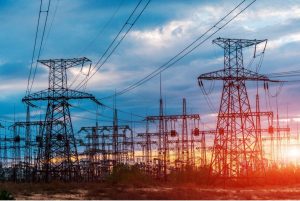Electricity is at the heart of modern civilization, shaping how people live, work, and interact. Without it, daily life would slow to a halt, industries would struggle, and essential services would face severe risks. For this reason, society continually engages in discussions about electrical issues, exploring the challenges they bring and the solutions needed to secure a reliable energy future.
Why Electrical Issues Matter in Society

Electrical systems are woven into every aspect of modern infrastructure. From powering homes and schools to sustaining hospitals and transportation systems, society depends on stable and safe electricity. When issues occur, the effects ripple across communities, affecting safety, productivity, and overall quality of life. This makes collective dialogue around electrical concerns essential for long-term stability.
Common Electrical Issues Faced Today
Communities and experts frequently discuss a range of electrical problems, including:

- Power Interruptions – Blackouts and brownouts caused by system overloads, weather events, or infrastructure damage can leave households and businesses vulnerable.
- Electrical Safety Hazards – Faulty wiring, improper installations, and neglected maintenance often lead to fires or accidents.
- Aging Infrastructure – Many electrical grids and wiring systems are decades old, struggling to meet modern demand and increasing the risk of breakdowns.
- Voltage Instability – Fluctuations in supply can damage appliances, reduce efficiency, and increase costs.
- Energy Waste – Outdated systems often consume more power than necessary, raising both environmental and financial concerns.
The Social and Economic Impact
Electrical issues influence society far beyond the inconvenience of a temporary outage. Their effects can be widespread and serious:
- Healthcare Risks – Medical facilities depend on electricity for life-saving equipment, and even brief interruptions may endanger patients.
- Educational Challenges – Remote learning platforms, digital classrooms, and research labs rely on consistent power access. Interruptions can slow progress and widen educational gaps.
- Workplace Productivity – Businesses face operational downtime, equipment damage, and financial losses when electricity is unreliable.
- Public Safety – Malfunctioning traffic lights, unlit streets, or disruptions in public transport systems can increase risks in communities.
- Environmental Stress – Wasted energy from inefficient systems adds pressure on natural resources and contributes to pollution.
How Society Discusses and Responds
Open discussion about electrical issues allows communities, policymakers, and professionals to share solutions and raise awareness. Public forums, educational initiatives, and community workshops help individuals understand safe practices, such as avoiding overloaded circuits or recognizing early signs of electrical problems.
At a broader level, governments and industries focus on investing in infrastructure upgrades, renewable energy integration, and advanced monitoring systems. By engaging in collective dialogue, society strengthens its ability to adapt to new challenges.
Preventive Measures and Innovations
Society’s discussions often highlight the importance of prevention. Regular inspections, system maintenance, and the use of safety devices such as surge protectors and circuit breakers help minimize risks. Businesses and homeowners are also encouraged to prepare with backup generators and energy-efficient appliances.
Technological innovation continues to transform how these issues are managed. Smart grids, for instance, improve reliability by monitoring supply and demand in real time. Renewable energy solutions diversify the power supply, while advanced diagnostic tools help detect faults before they escalate.
The Role of Education and Awareness
Electrical safety education is a recurring theme in community discussions. Many incidents result not from system flaws but from human error, such as careless use of outlets or neglecting basic safety practices. By spreading knowledge about proper handling of electrical systems, society reduces preventable accidents.
Educational campaigns also emphasize sustainability, encouraging individuals and businesses to adopt energy-saving habits. These small changes contribute to larger solutions, creating a culture of responsibility and resilience.
Preparing for the Future
As society grows more dependent on electricity, discussions about its challenges and solutions will remain vital. The combined efforts of individuals, industries, and governments ensure that systems evolve to meet rising demands safely and sustainably. By continuing these conversations, communities foster awareness, resilience, and innovation in the face of ongoing electrical challenges.